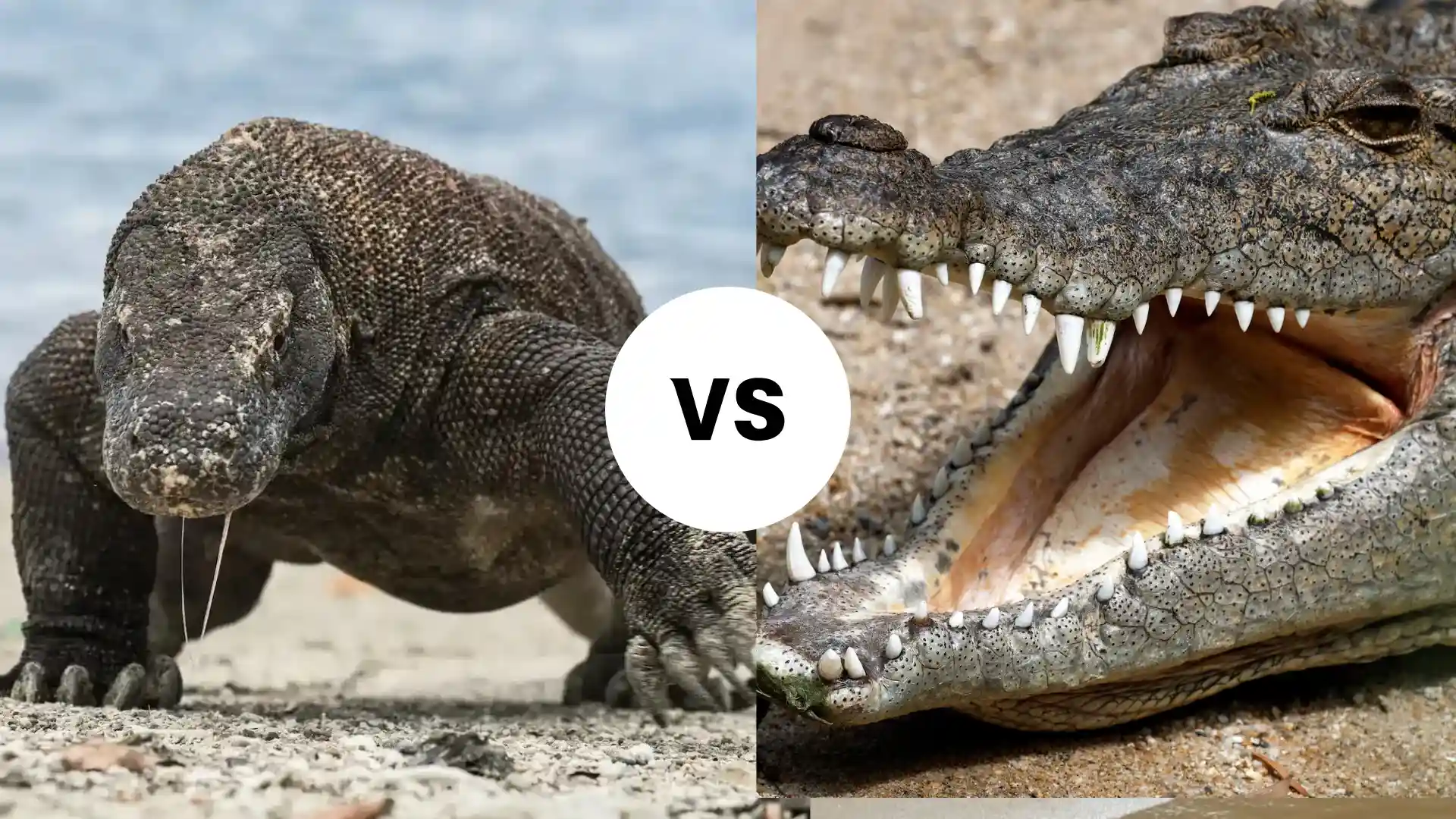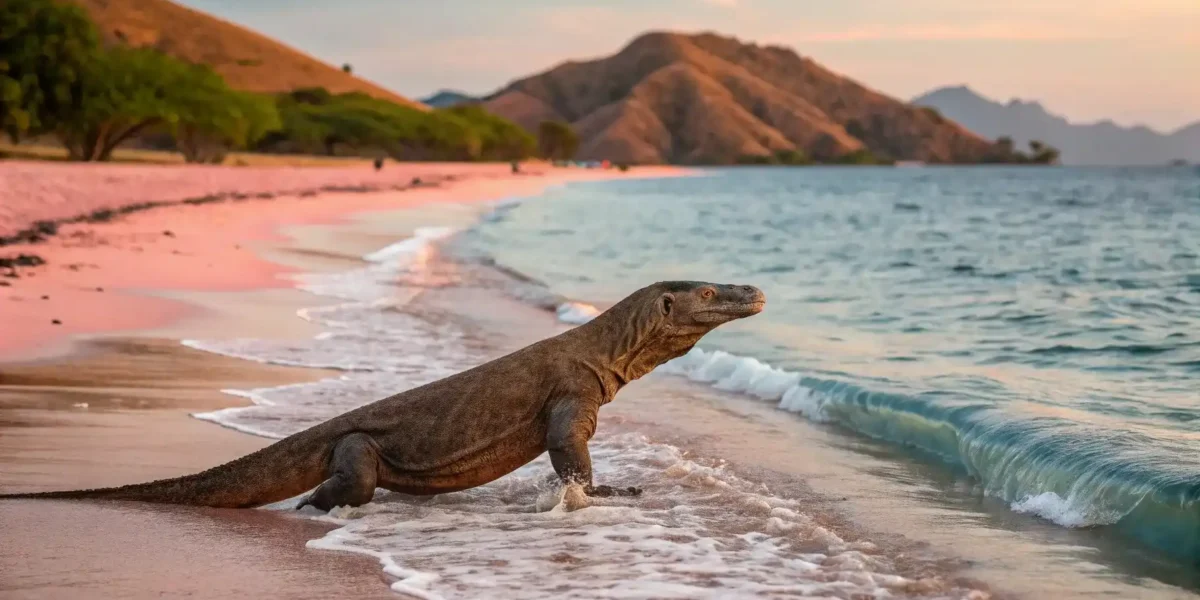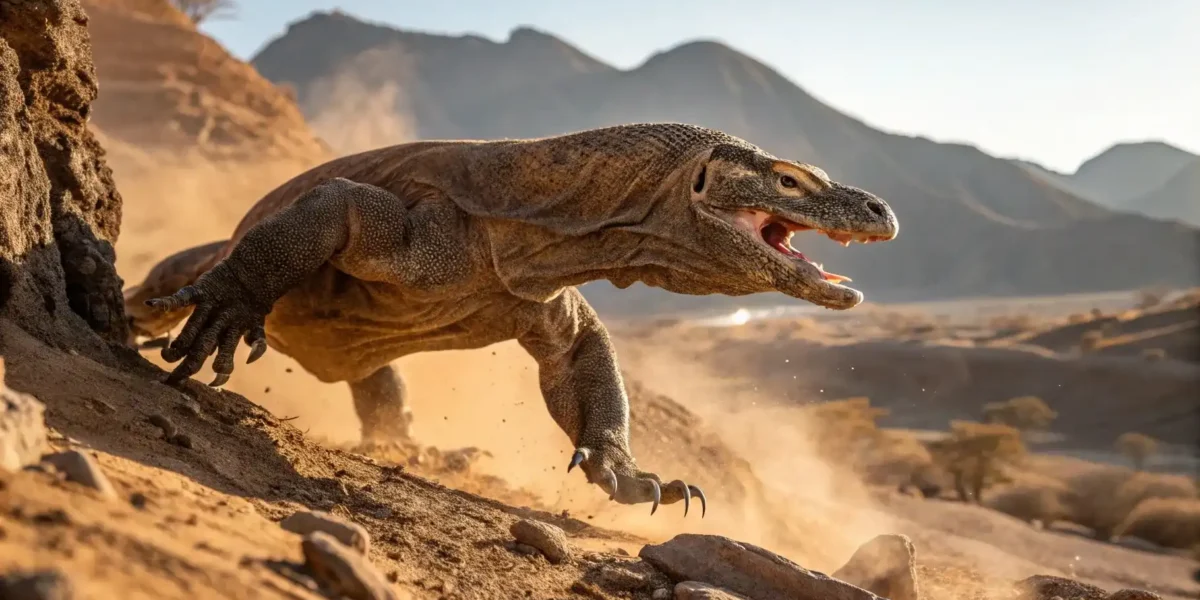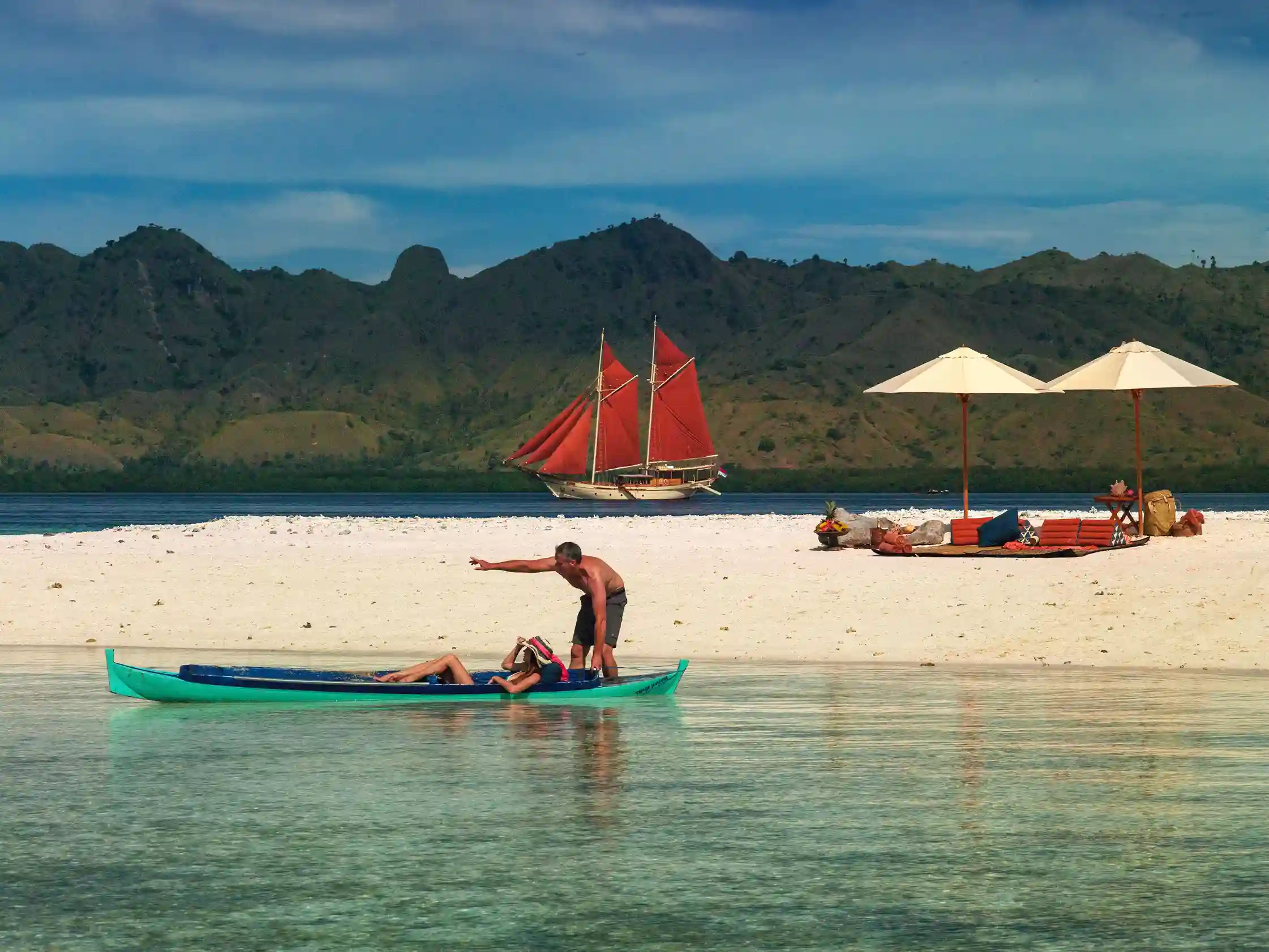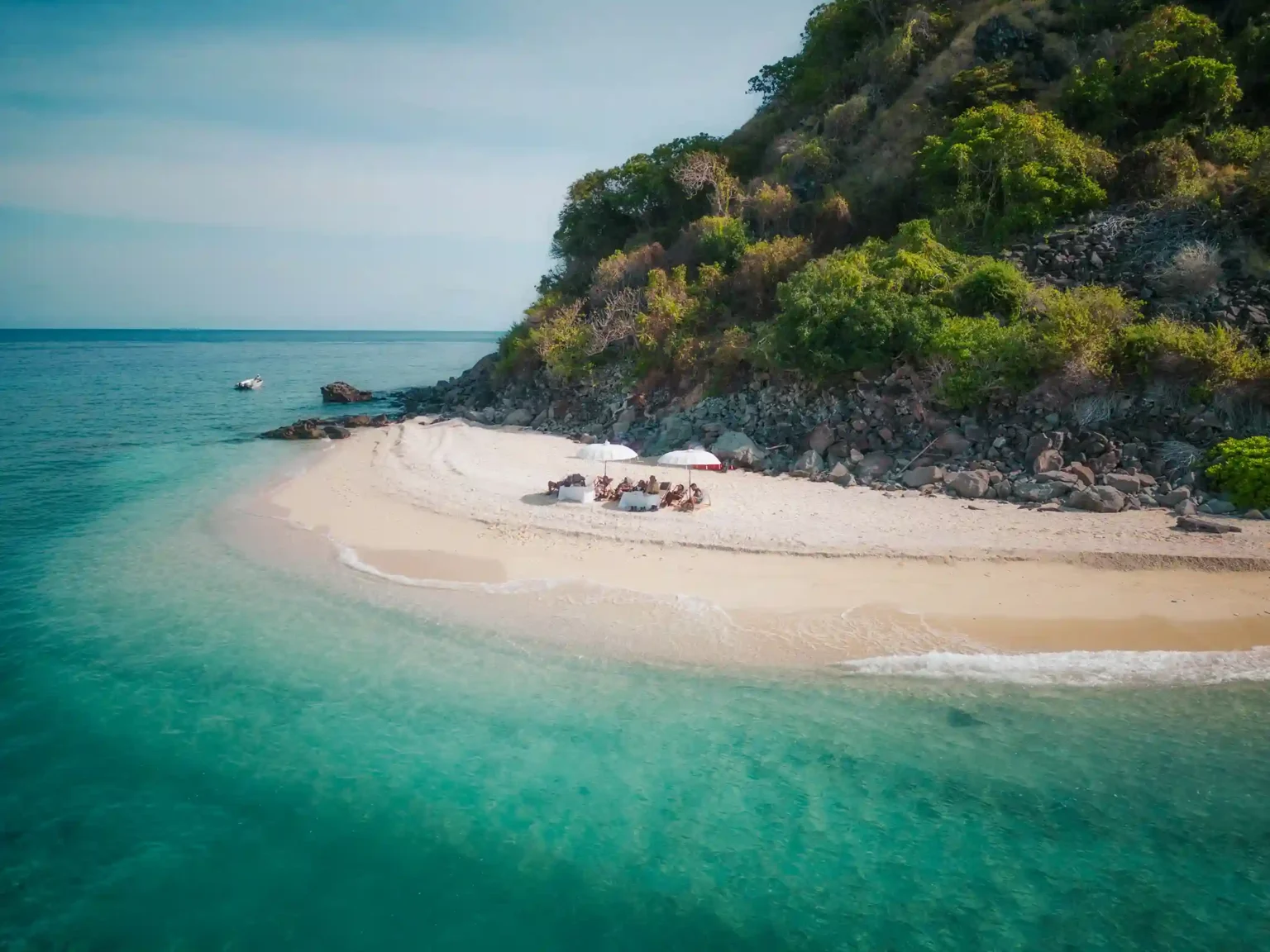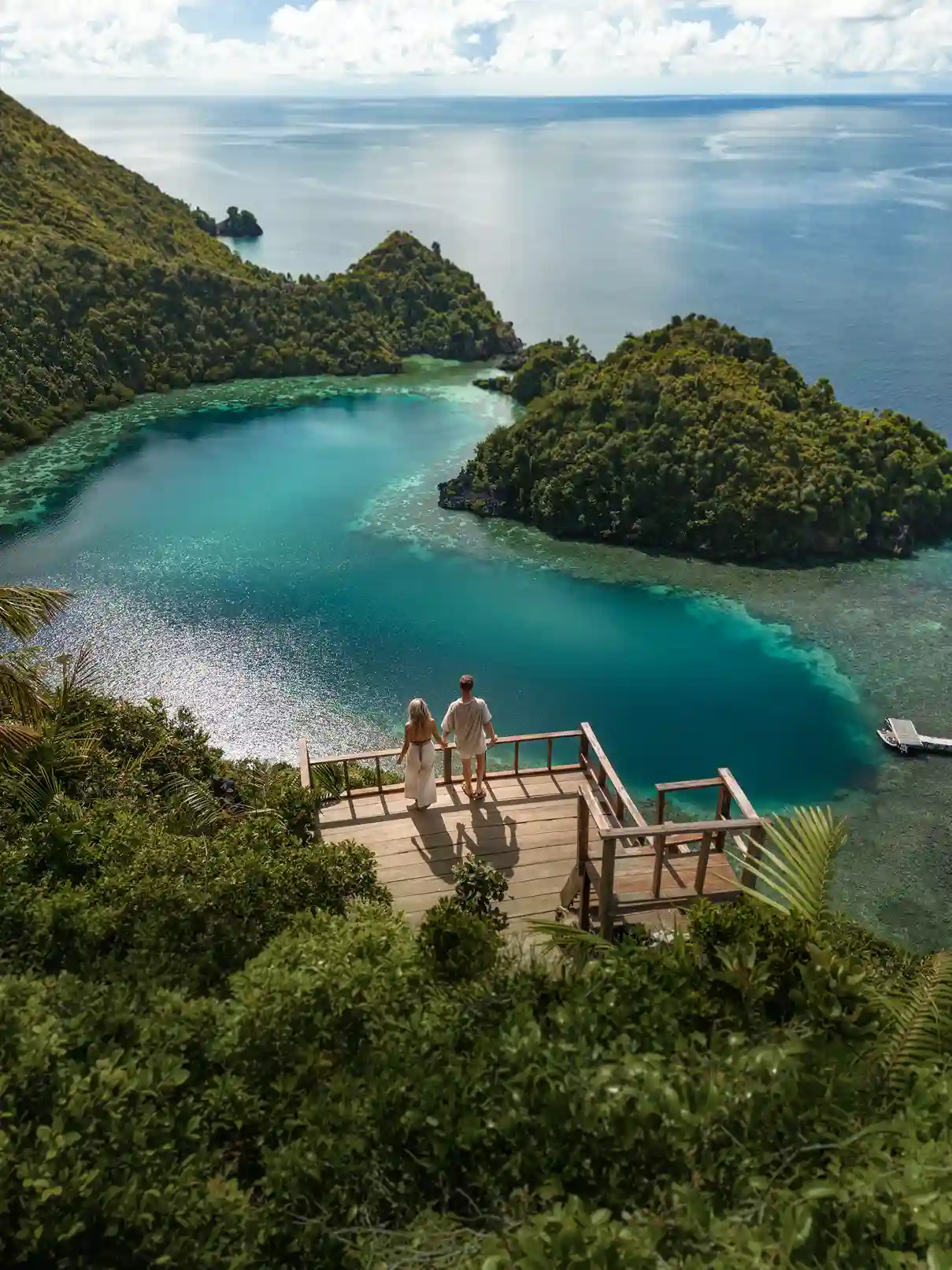Have you ever wondered which would win in a fight: a Komodo Dragon or a Saltwater Crocodile? Both creatures are at the top of the food chain in their respective habitats, but they differ significantly in size, strength, and hunting techniques. Both of these fearsome reptiles are natural hunters, but what would happen if they faced off against one another? Which one would win?
In this article, we’ll break down everything you need to know about the Komodo Dragon and the Saltwater Crocodile—comparing their size, speed, strengths, and even weaknesses. Let’s see who wins this ultimate battle of titans.
Komodo Dragon: The King of Lizards
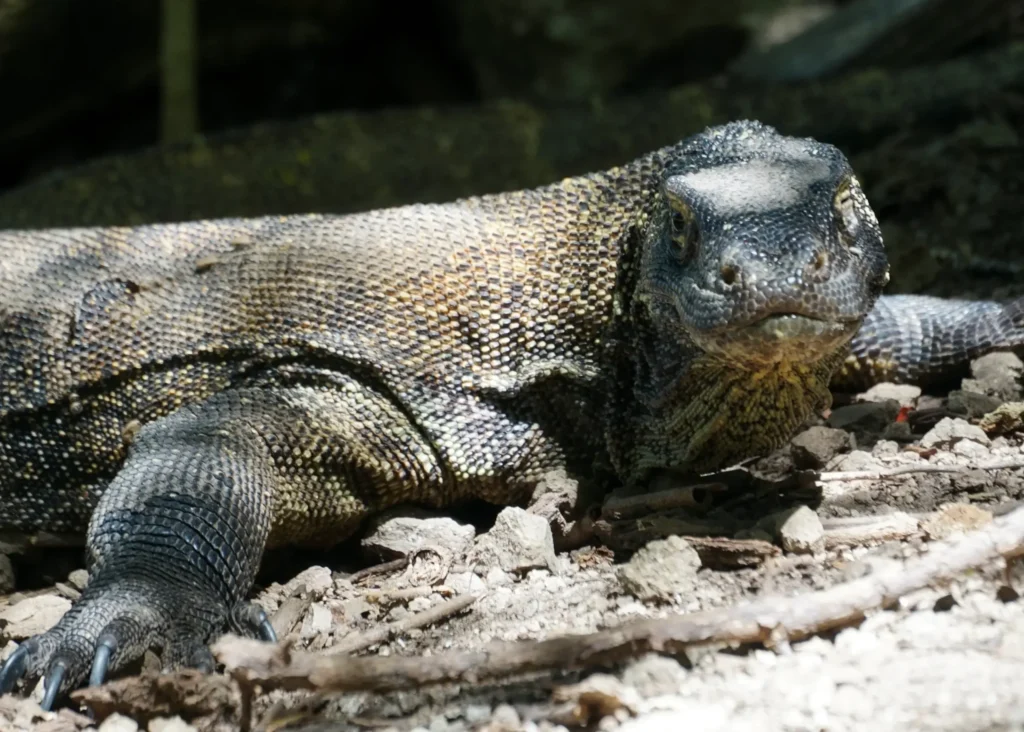
The Komodo Dragon (Varanus komodoensis) is the largest living lizard in the world, native to a few Indonesian islands, including Komodo, Rinca, and Flores. These impressive creatures can grow to an average length of 2-3 meters (6-10 feet) and weigh around 70-90 kilograms (150-200 pounds). What makes them deadly isn’t just their size, though—it’s their venomous bite. A Komodo Dragon’s saliva contains deadly bacteria and venom that can cause massive blood loss, shock, and eventually, death.
Komodo Dragons are solitary hunters, relying on stealth and patience to stalk their prey. They can run at speeds of up to 20 km/h (12 mph) in short bursts, which is fast enough to surprise and take down animals like deer, pigs, and even water buffalo. While they aren’t built for long chases, once they land a bite, it’s often only a matter of time before their prey succumbs to infection or venom.
Habitat
Komodo Dragons thrive in dry savannas, grasslands, and scrubby forests found on the islands of Indonesia.
Key Strengths
- Venomous bite that can incapacitate prey over time.
- Powerful jaws capable of tearing flesh.
- Quick bursts of speed, making them efficient ambush hunters.
Weaknesses
- Limited stamina for long chases.
- Not well-adapted to water, restricting their hunting range to land.
Saltwater Crocodile: Water’s Top Predator

The Saltwater Crocodile (Crocodylus porosus) is not only the largest living reptile, but it also holds the title for the strongest bite of any animal on Earth. Saltwater crocs are true giants of the animal kingdom, reaching over 6 meters (20 feet) and weighing more than 1,000 kilograms (2,200 pounds). Their bite pressure exceeds 3,500 psi, strong enough to crush bones and break through thick hide with ease.
Saltwater crocodiles are ambush predators, primarily hunting in water where they’re quick and agile. They lurk just below the surface, waiting for the perfect moment to launch a surprise attack on their prey. They can swim at speeds of 24-29 km/h (15-18 mph) in water and are known to attack everything from fish and birds to large mammals, including cattle.
Habitat
These crocodiles are found in saltwater and brackish environments, including rivers, swamps, estuaries, and coastal waters, across Southeast Asia, northern Australia, and surrounding regions.
Key Strengths
- Extremely powerful bite is capable of crushing bones.
- Massive size and strength, making them nearly invincible in water.
- Agility in water allows them to attack with lightning speed.
Weaknesses
- Slow and awkward on land.
- Relies heavily on water for effective hunting.
Komodo Dragon vs Saltwater Crocodile: Side-by-Side Comparison
| Features | Komodo Dragon | Saltwater Crocodile |
| Size | 2-3 meters (6-10 feet) | 5-6 meters (16-20 feet) |
| Weight | 70-90 kg (150-200 lbs) | 500-1,000 kg (1,100-2,200 lbs) |
| Speed | 20 km/h (12 mph) on land | 24-29 km/h (15-18 mph) in water |
| Main Strength | Venomous bite, sharp jaws | Strongest bite in the animal kingdom |
| Weakness | Not strong in water | Limited mobility on land |
| Lifespan | 30 years | 70 years |
| Habitat | Savannas, dry grasslands | Rivers, swamps, estuaries |
| Diet | Carnivore (deer, pigs, buffalo) | Carnivore (fish, birds, mammals) |
| Reproduction | Lays around 20 eggs/year | Lays 40-50 eggs/year |
Key Differences Between Komodo Dragons vs Saltwater Crocodiles
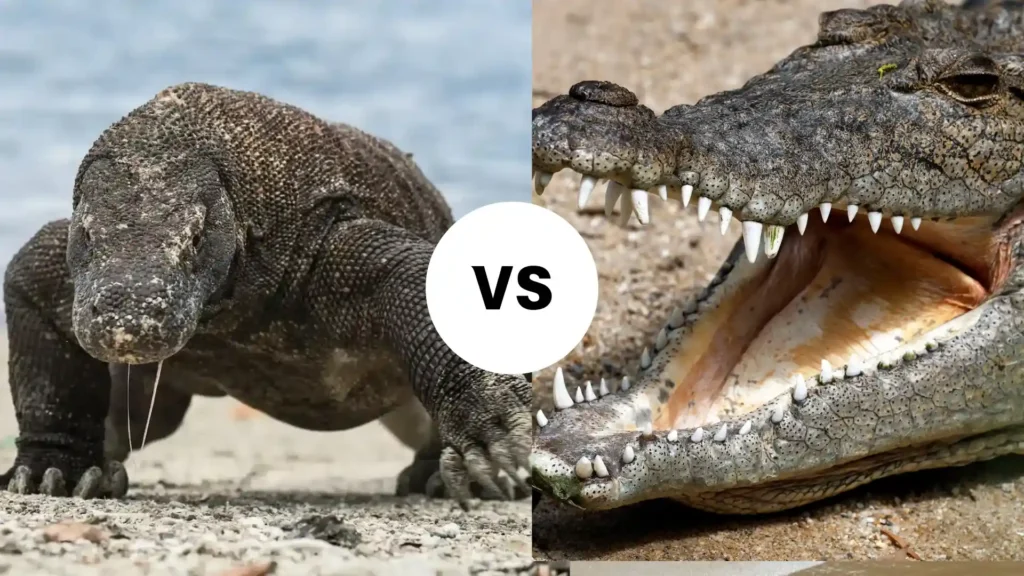
While both are powerful predators, they are distinct in many ways. Here are some of the key differences between the two:
1. Body Shape
The Komodo Dragon has a more streamlined, slender body, built for agility on land. In contrast, the Saltwater Crocodile is bulkier, with a powerful tail designed for swimming and maneuvering in water.
2. Teeth
Komodo Dragons have razor-sharp teeth that help tear flesh. On the other hand, Saltwater Crocodiles boast large, crushing teeth designed to grip and break through bones.
3. Size
Saltwater Crocodiles are considerably larger than Komodo Dragons, often more than doubling their weight and length, giving them a significant size advantage.
4. Coloration
Komodo Dragons are typically a dark, earthy brown or grey color, while Saltwater Crocodiles have a mix of greenish-brown shades with black bands, providing excellent camouflage in water.
5. Skin Texture
Saltwater Crocodiles have thick, armor-like skin, covered in tough scales that offer protection against physical attacks. Komodo Dragons, while having tough skin, are much less armored in comparison.
6. Head Shape
Komodo Dragons have narrow, elongated heads, while Saltwater Crocodiles feature a broad, wide snout with massive jaw muscles optimized for their powerful bite.
Komodo Dragon vs Crocodile: Are They Dangerous to Humans?
Both creatures can be incredibly dangerous to humans, though encounters are relatively rare.Komodo Dragons are not known to attack humans frequently, but when they do, their bites are highly lethal due to the venom and bacteria in their saliva. Even a small bite can lead to serious infections or worse if untreated.
On the other hand, Saltwater Crocodiles are notorious for attacking humans, especially in areas where humans and crocs share close proximity to water. Their ambush tactics make them one of the deadliest reptiles in the world, with numerous documented cases of fatal crocodile attacks.
In short, both animals should be approached with extreme caution, though Saltwater Crocodiles have a much higher track record for attacking humans.
Read more: Wildlife Wonders: From Australia’s Kangaroos to Indonesia’s Komodo Dragons
Conclusion: Who Would Win in a Fight?
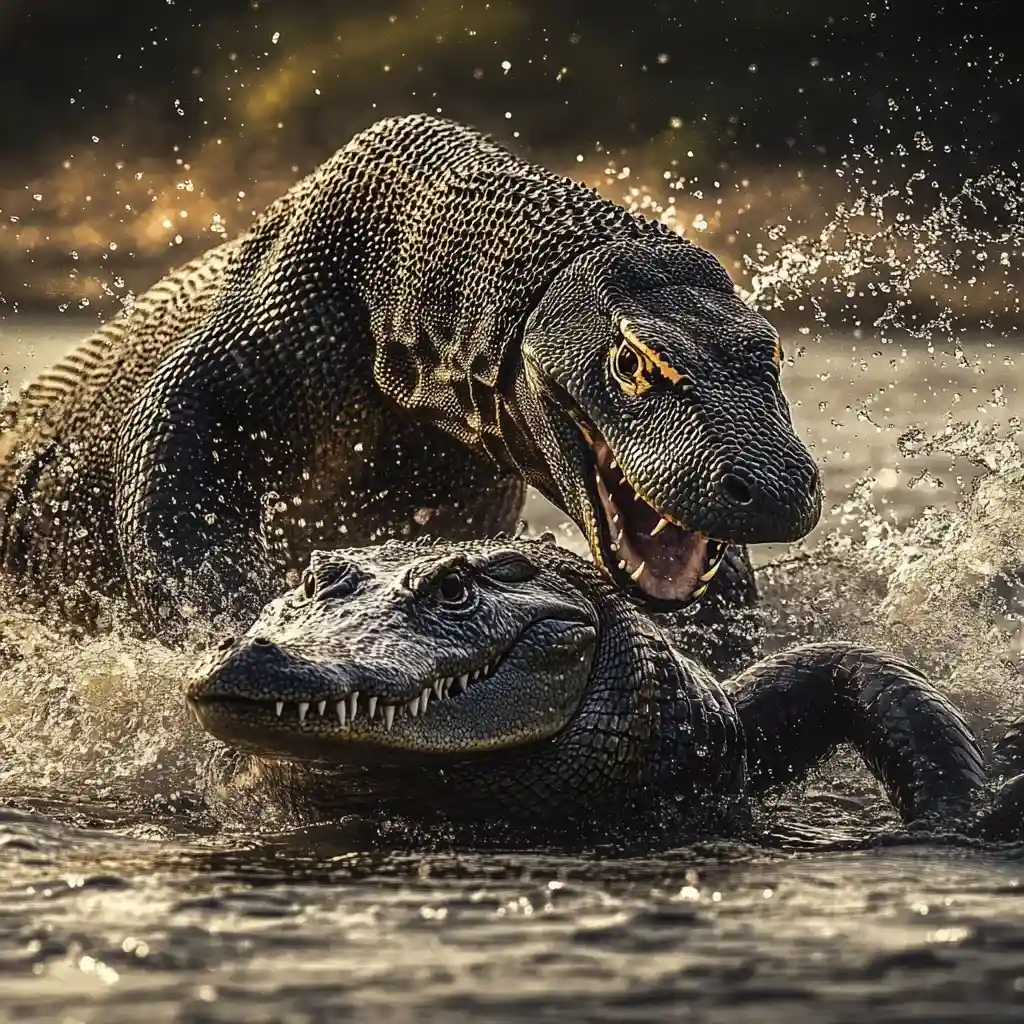
If a Komodo Dragon were to face off against a Saltwater Crocodile, the Saltwater Crocodile would likely come out on top. Its immense size, brute strength, and bone-crushing bite give it a significant advantage in a direct confrontation. However, the Komodo Dragon isn’t without its deadly assets, especially its venomous bite, which could eventually prove fatal—but in a drawn-out battle, the Crocodile would likely win before that venom takes effect.

If you are interested in seeing the Komodo Dragon live in its natural habitat, visit Komodo Island and enjoy an extraordinary experience through the Komodo Island Tour Package offered by Komodo Luxury. It is a rare opportunity to see one of the world’s most iconic predators in its natural habitat. Don’t let space run out! Book now!







